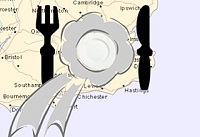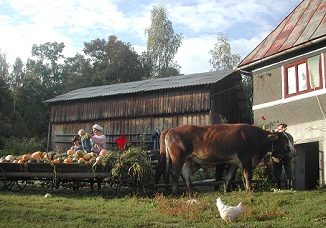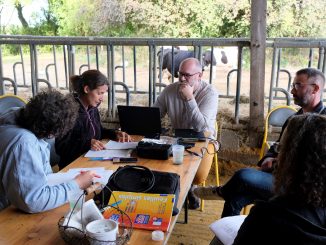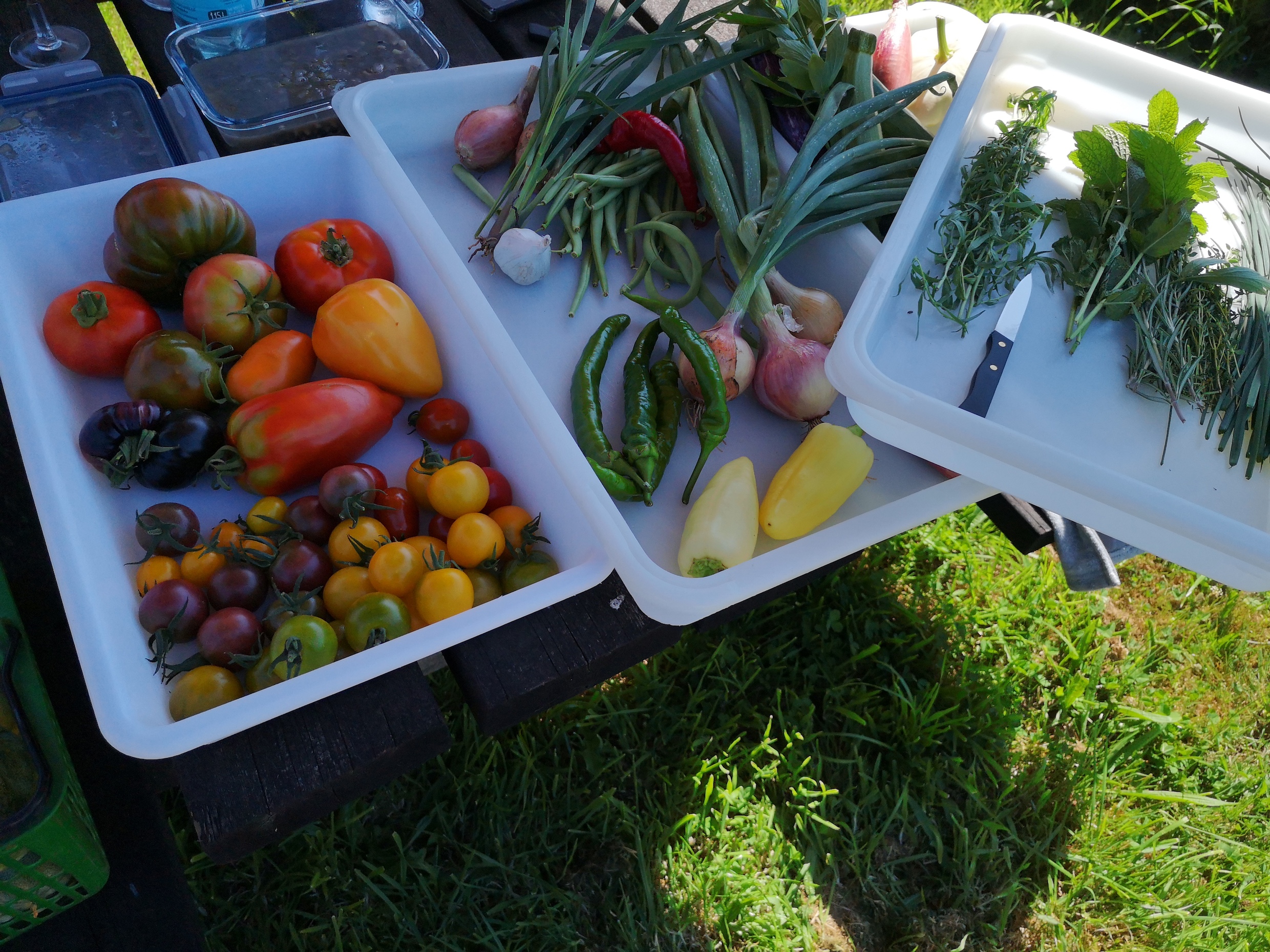
This extract from “Rural Europe Takes Action – No more business as usual” tells the story of the Sustainable Food Consortium, a group of food activists who came together in Redon, France. We hear in particular about the political, bureaucratic and agro-industrial barriers the Consortium faced, and draw some learnings from this.
“Rural Europe Takes Action – No more business as usual” is the policy guide that ARC2020 co-published with Forum Synergies in June 2022. The Redon Sustainable Food Consortium features in Chapter 2 of the book, alongside the Commune of Plessé in rural West of France, a cargo bike delivery service based in Budapest and other inspiring initiatives that demonstrate the importance of local governance and circular economies for people and the planet. Chapter 2 also contains action points for policymakers on supporting such governance and economic models at local level. We describe those policy actions below before sharing the story of the Redon Sustainable Food Consortium as told by its co-founder, Xavier Hamon.
The Rural Europe Takes Action e-book is available here. To order a copy, contact info@forum-synergies.eu.
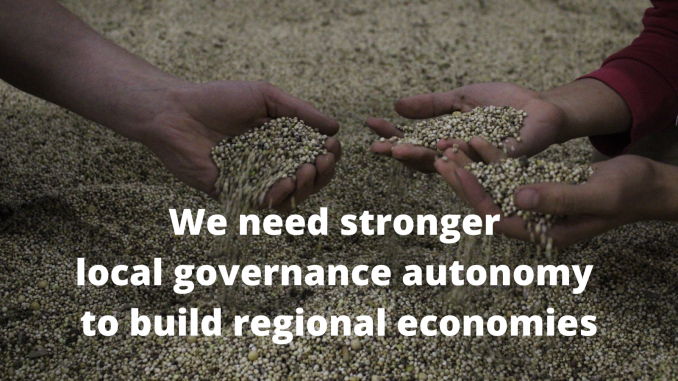
Policy Action
We need stronger local governance autonomy to build regional economies
This chapter features initiatives taking action to create new space for their circular economy so that new governance and economic models can emerge at the local level with people and the planet at their centre. Praising the local economy is not enough: set against a recently re-nationalised CAP, local economic integration must be supported rather than the sectoral policies currently applied by the EU and member states.
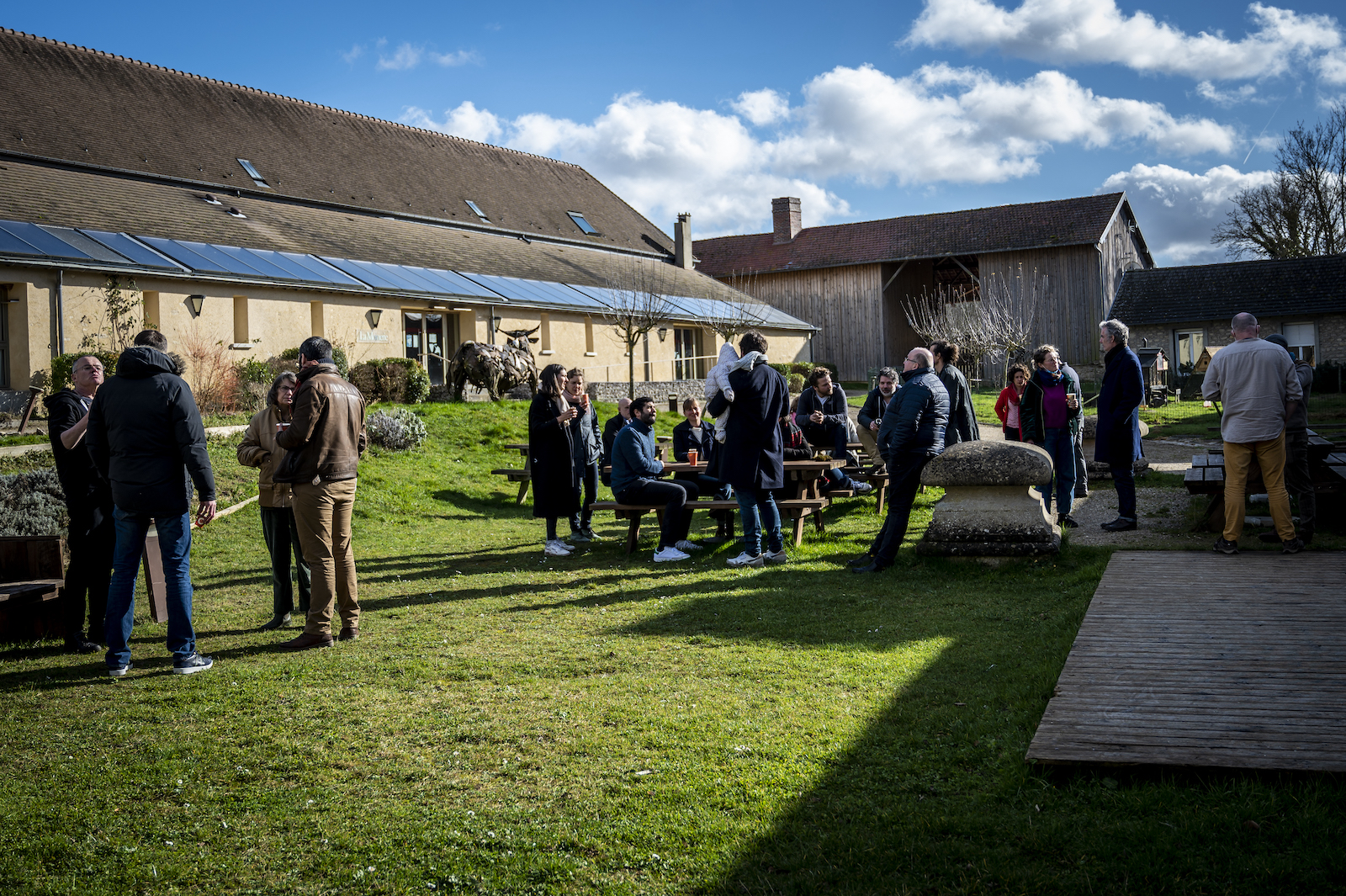
A Shared Space for Food Transition
By Xavier Hamon, Redon Sustainable Food Consortium Co-founder
In 2018 we created the Sustainable Food Consortium in Redon to develop our sustainable food practice. A grouping of citizens and elected representatives from diverse professional backgrounds, we created a local network to address unmet needs. Intended as an alternative to France’s Chamber of Agriculture – the state body sorely out of step with the agroecological transition – and in response to a vague and under-resourced Local Food Plan (Plan Alimentaire Territorial), our objective was to create a food transition hub to which each member of the food community would bring their know-how – thereby giving the people a voice. We would create a shared space for food transition, and an incubator for ideas on how to build it together.
A confluence of knowledge, skills and initiatives
The Consortium was an attempt to harness the alchemy of a local farming and food festival, Fête de la vache nantaise. Held once every four years in celebration of a local heritage cow breed, the festival brings all of society’s issues into focus in a single territory, while incorporating the indissociable elements of transition: climate, environment, social, economy, culture, education, 3rd sectors, democracy.
Once every four years is not enough. We wanted to keep the spirit of the festival alive. Basing our actions on practice rather than ideology or regulations, we would honour specificities incompatible with industrial norms. And finally, we would programme a season of food culture to keep alive our culinary heritage.
Facing reality
The Consortium was formed to face the realities of change. We have chosen to take action to transform our territory. Our ambition was to bring local actors together around our common humanity. As well as the organisers of the Fête de la vache Nantaise (a group called Pas Bête la fête), these actors were slow food cooks (Alliance Slow Food des Cuisiniers), agricultural and catering colleges (Université des Sciences et des Pratiques Gastronomiques – USPG, and ISSAT: Lycée professionnel Agricole de Redon), heritage breeder organisations (Fédération des races de Bretagne, Conservatoire des Races animales en Pays de la Loire – CRAPAL) and the conurbation authority (Redon Agglomération).
The dominant development model poses questions for all actors with a professional interest in sustainable food. Thanks to the Consortium’s multi-sector makeup, we were able to analyse sectors and draw up an action plan to develop our own tools for food transition at a human scale. However, the drawback of such a diverse make-up is that there can be a lack of shared ambition between actors.
No food policy
Despite the fact that the Redon conurbation authority is part of the Consortium, there is a lack of political support. Redon’s many working groups and committees on food, within various ‘consultative’ bodies, water down the issues and are disconnected from food professionals on the ground. Indeed, local food policy is de facto dictated by the Chambers of Agriculture and the agri-food industry, and we have been pressured to include these interest groups in the Consortium.
Money matters
We are largely self-funded. The Redon conurbation authority provided marginal funding as well as support in structuring the Consortium. At regional and European level, co-financing was approved for a feasibility study. However, both at local and regional level, we were refused funding for the running of the network.
The Consortium needed funding and emancipation, not charity. The feasibility study came to a bitter conclusion: due to a lack of funding, the project had to be put on hold. This funding was indispensable to pay for three full-time members of staff to get the project off the ground. The reason the local authorities turned down the application is telling: the Chamber of Agriculture wasn’t part of the project; neither was the agro-industry. It seems the Sustainable Food Consortium was too bottom-up.
The job of the local authorities is to provide for the common good – including food and farming
The power of the local
Local territories are where people still come together. Territories can have a systemic, cross-cutting overview. Each territory has unique and specific strong points. These are places of direct dialogue and discussion. At the local level, we are speaking to individuals rather than organisations. We can share the complexity of people’s circumstances and together reach a consensual outcome. Citizen chambers of food should be created, or citizens should be part of the process of electing representatives on food issues.
We must recreate social ties and political dialogue between citizens, sectors and organisations (unions and political groups) within new agoras or citizen organisations. We must recreate conditions for living together in our town halls, theatres, streets, community centres, trade union centres and any space that can foster connections between people in public spaces.
This is an extract from “Rural Europe Takes Action – No more business as usual” published by ARC2020 and Forum Synergies in June 2022. The e-book is available here and a PDF version can be downloaded here. To order a hardcopy, contact info@forum-synergies.eu.
More on Local and Circular
Rural Europe Takes Action | Creating Alternatives, Creating Community
More on other Rural Europe Takes Action themes
Rural Europe Takes Action | CSA and the Building of a Food Commons
Rural Europe Takes Action | Regenerative Governance in Rural Spain


